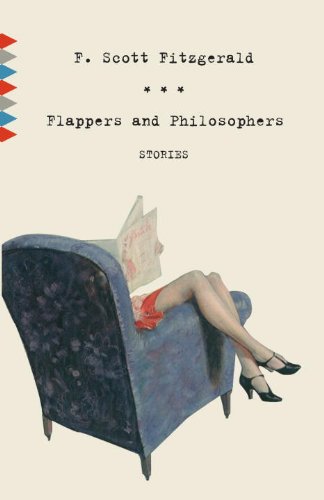All Nonfiction
- Bullying
- Books
- Academic
- Author Interviews
- Celebrity interviews
- College Articles
- College Essays
- Educator of the Year
- Heroes
- Interviews
- Memoir
- Personal Experience
- Sports
- Travel & Culture
All Opinions
- Bullying
- Current Events / Politics
- Discrimination
- Drugs / Alcohol / Smoking
- Entertainment / Celebrities
- Environment
- Love / Relationships
- Movies / Music / TV
- Pop Culture / Trends
- School / College
- Social Issues / Civics
- Spirituality / Religion
- Sports / Hobbies
All Hot Topics
- Bullying
- Community Service
- Environment
- Health
- Letters to the Editor
- Pride & Prejudice
- What Matters
- Back
Summer Guide
- Program Links
- Program Reviews
- Back
College Guide
- College Links
- College Reviews
- College Essays
- College Articles
- Back
Flappers and Philosophers by F. Scott Fitzgerald
F. Scott Fitzgerald’s writing is very famous, even though his works were written in the 1920s and 30s. After hearing so much about him, I decided to read one of his books. I read Flappers and Philosophers, a collection of eight short stories in the realistic fiction genre published in 1920. I cannot say that I was disappointed.
There were several enjoyable aspects about the book. One of them was undoubtedly the excellent characterization. Every character has clearly defined traits and a certain way of thinking. These traits are not always stated, but they’re easy to infer. Although not all of the actions of the characters are “normal” or predictable, the reader can understand why this was done. Here’s an example from “The Ice Palace”: “Clark was dark and lean, and… rather inclined to stoop. His eyes were ominous and his expression somewhat petulant except when startlingly illuminated by one of his frequent smiles.” The reader can already tell a good deal about Clark just from this description of what he looks like.
There are several stories in the anthology in which the characters change. For example, Bryan Dalyrimple in “Dalyrimple Goes Wrong” goes through a large change when his fame from his war service dissipates and he discovers “the real world.” Another fascinating story about change is called “”The Four Fists,” in which a young man learns from being punched in the face. In both stories, the plotline is brilliant, and the transformation is amazing to watch. There are also several stories where the characters must make difficult choices, such as “Bernice Bobs Her Hair” and “Benediction.” Reading the thoughts of the characters as they make these decisions is very interesting, and I found that I could relate to them although I hadn’t been in those situations.
Another thing that I greatly appreciated was that the stories were not repetitive. All the stories in Flappers and Philosophers were original. When reading collections of short stories, one of the most annoying things is repetition. Fitzgerald did a great job avoiding this. The stories were about different people that face various conflicts and have different ways of dealing with them. Some had happy endings, some had sad endings, some came to the end gradually and some had unexpected twists. Overall, there was a good deal of variety in Flappers and Philosophers. By the time I reached the last story, I was still “hooked” on the unique plot.
Although almost all of the stories contain some mention of or reference to romance, only two of them are all about it. These are “The Offshore Pirate” and “Head and Shoulders”. “The Offshore Pirate” is about falling in love with people because of the type of person you are, and “Head and Shoulders” is about how love can change you. The different perspectives that these stories have on romance is quite interesting.
One of the hardest things in writing is to create a good ending. I’m sometimes picky about this, since the ending is my favorite part in any piece of literature. I found the endings of the stories quite satisfying. For example, the ending of “The Cut Glass Bowl” appealed to me. The last sentence distances itself from the powerful emotions of the main character being described previously. It gives a description of the cut glass bowl which shows the fate of the protagonist. Another interesting ending was that of the story “Head and Shoulders.” It takes a metaphor used by one of the characters in a direction you would never expect!
Overall, Flappers and Philosophers is a captivating anthology that is definitely worth a read. With all the diverse stories, there is something for almost every book lover. Even readers who are not intrigued in the genre of realistic fiction may find something in this brilliantly written work.
Similar Articles
JOIN THE DISCUSSION
This article has 0 comments.

